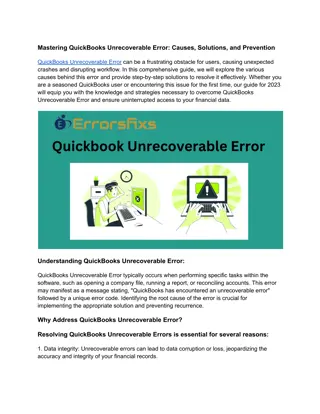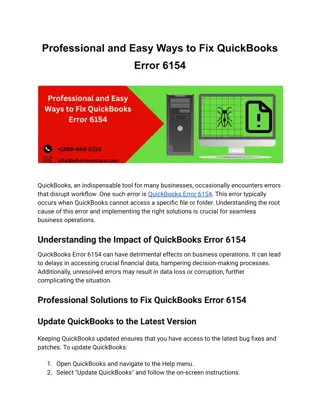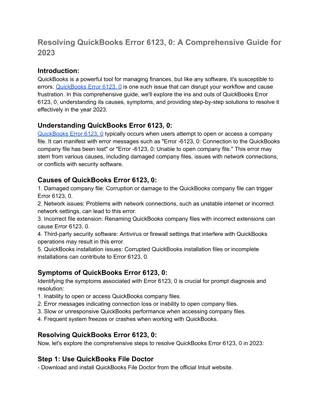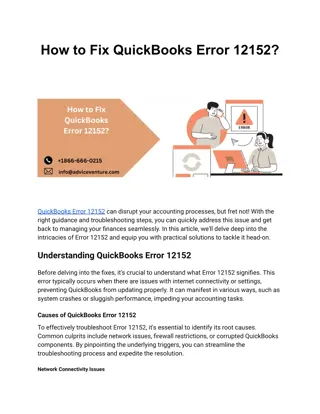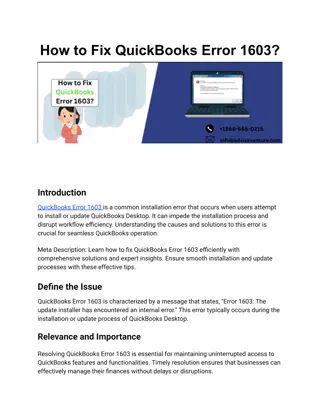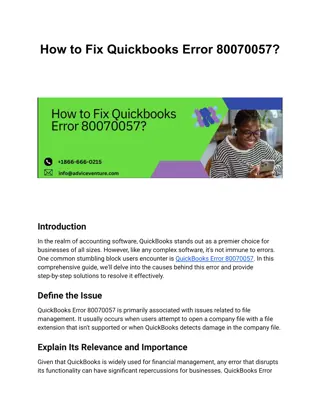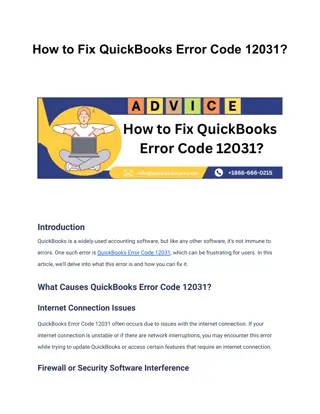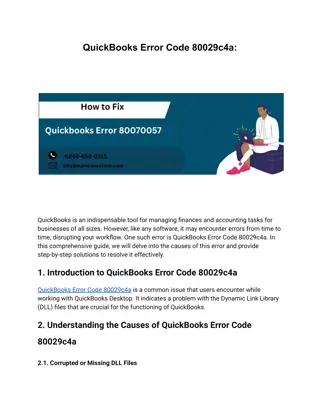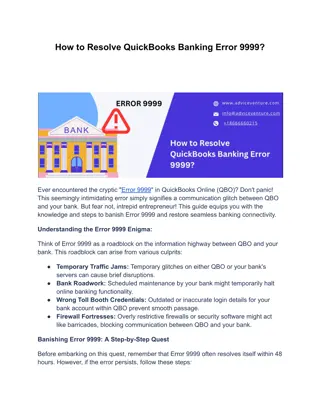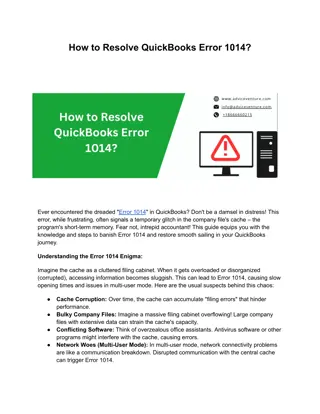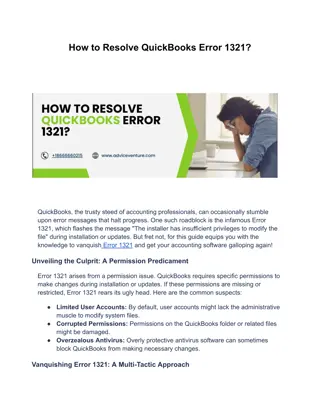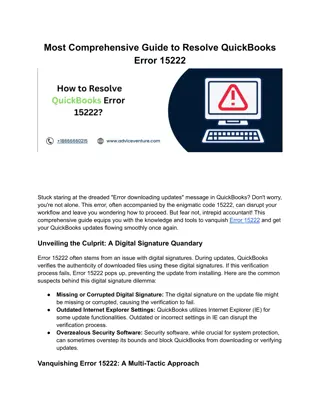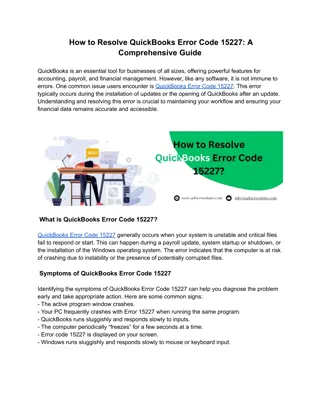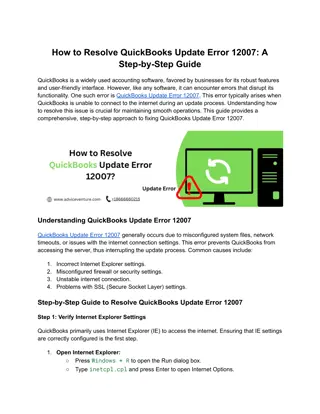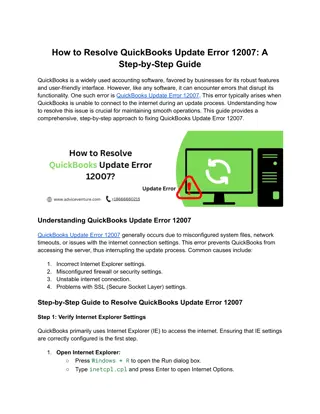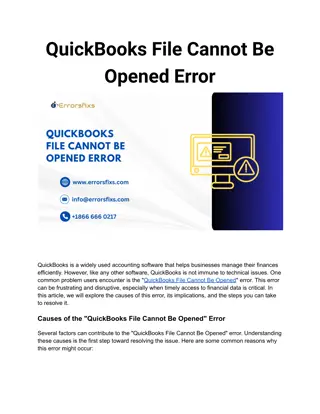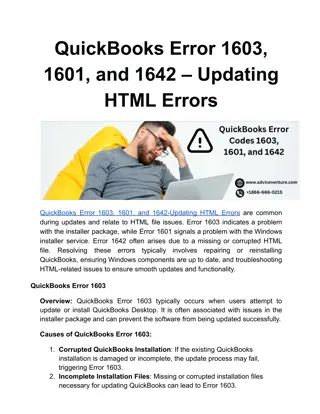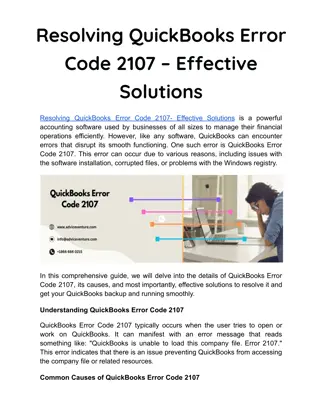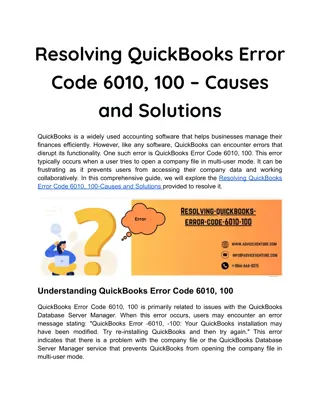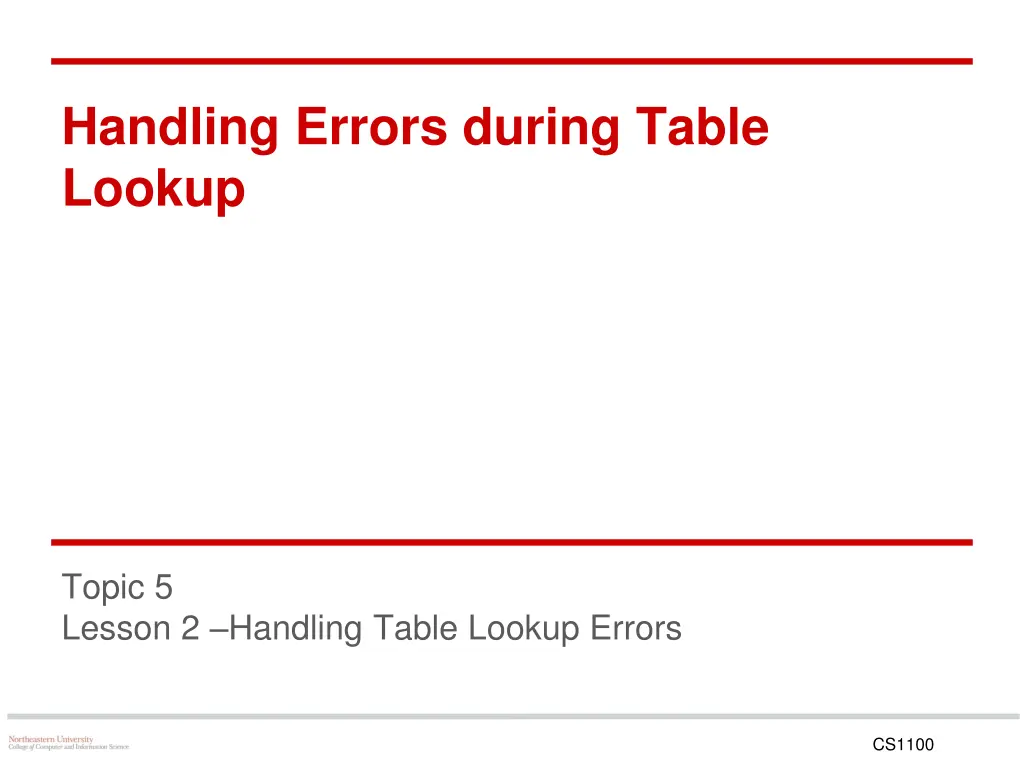
Handling Table Lookup Errors in Conditional Logic
Learn how to handle errors that occur during table lookup operations in spreadsheets. Understand the use of IFERROR function to detect and manage errors like #N/A, #DIV/0!, #NAME?, #NUM!, #REF!, and #VALUE!. Explore techniques for catching errors in models and utilizing IFERROR with VLOOKUP for efficient error processing.
Download Presentation

Please find below an Image/Link to download the presentation.
The content on the website is provided AS IS for your information and personal use only. It may not be sold, licensed, or shared on other websites without obtaining consent from the author. If you encounter any issues during the download, it is possible that the publisher has removed the file from their server.
You are allowed to download the files provided on this website for personal or commercial use, subject to the condition that they are used lawfully. All files are the property of their respective owners.
The content on the website is provided AS IS for your information and personal use only. It may not be sold, licensed, or shared on other websites without obtaining consent from the author.
E N D
Presentation Transcript
Handling Errors during Table Lookup Topic 5 Lesson 2 Handling Table Lookup Errors Conditional Logic | Miscellaneous Functions CS1100
Lookup Errors What happens when VLOOKUP cannot find the value? Returns error #N/A Use IFERROR to detect errors from the lookup function and provide an alternative to be stored in the cell. Conditional Logic | Miscellaneous Functions CS1100 2 CS1100
Error values and their meanings Error Meaning #DIV/0! division by 0 #N/A! cannot find referenced data #NAME? text in formula not recognized #NUM! invalid numeric data #REF! reference invalid #VALUE! wrong function argument Conditional Logic | Miscellaneous Functions CS1100
Catching Errors Models can contain errors, such as: Divide by 0 Lookup value not found Substring not found To test if a function returns an error, use IFERROR. Conditional Logic | Miscellaneous Functions CS1100 4 CS1100
Using IFERROR IFERROR works almost like IF, except that there s no condition to test: =IFERROR (value, value_if_error) Using IFERROR with VLOOKUP: =IFERROR (VLOOKUP(F2,HealthRates,2,FALSE), 0) Lookup and Error Processing Conditional Logic | Miscellaneous Functions CS1100 5 CS1100


